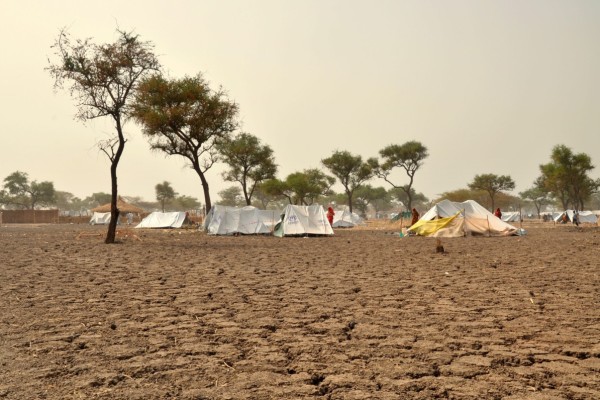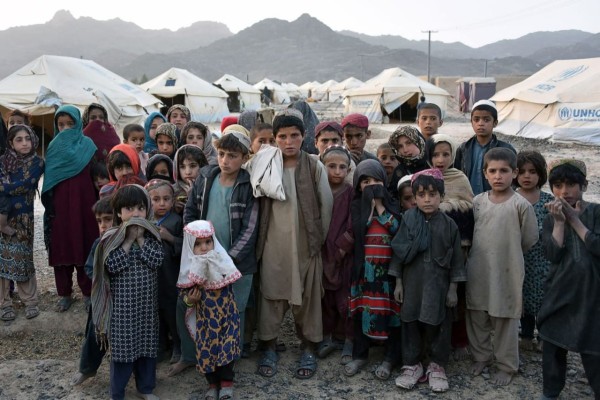Events in Iraq and Niger put spotlight on Canadian troops abroad
The fact that Canada has soldiers stationed overseas almost never comes up in domestic political discourse

Special Forces Operators from the Canadian Special Operations Regiment alongside soldiers from the Forces Armées Nigériennes in Niger, 2016. Photo courtesy Canadian Armed Forces/Facebook.
In the latest episode of On Contact, Scott Taylor’s video series for Esprit de Corps military magazine, the journalist and former infantryman drew attention to two ongoing Canadian deployments abroad, of which most Canadians know little to nothing: Iraq and Niger.
“There were two news stories out last week which served as a reminder that Canada still has combat soldiers deployed to two global hotspots that rarely get mentioned in the media, namely, Niger and Iraq,” said Taylor. “What the hell [are] Canadian soldiers doing in those countries?”
This is an important question. Since 2014, hundreds of Canadian troops have been stationed in Iraq as part of Operation IMPACT, Canada’s contribution to the anti-ISIS military coalition.
Though ISIS is no longer the threat it once was, Canadian forces are still in Iraq. More important, the government of Iraq does not want the Canadians there.
After the US government’s assassination of Iranian general Qassem Soleimani and Iraqi Popular Mobilization Forces (PMF) leader Abu Mahdi al-Muhandis inside Iraq in January 2020, the Iraqi parliament voted unanimously to demand foreign troops leave the country, including Canadians. But Canada didn’t leave—after a brief pause in operations following the murder of Soleimani and al-Muhandis, Canadian soldiers just went back to work.
Yves Engler writes: “Signs indicate Canadian personnel will simply take the lead from the United States on whether to remain there indefinitely—in opposition to the desires of the Iraqi people.”
Operation IMPACT also saw the Canadian government deepen its ties to the repressive Kuwaiti monarchy, as Canadian troops stationed in Kuwait contributed to IMPACT operations. Meanwhile, a military whistleblower has said that Canadian troops trained Iraqi soldiers suspected of war crimes, and when higher-ups were informed of these suspicions, they showed no interest.
According to CBC defence writer Murray Brewster, “Canada not only trained suspected Iraqi war criminals in 2018, it distributed Western-made weapons and protective equipment to them.” Meanwhile, Canadian soldiers conducting on-the-ground training in northern Iraq “warned [superiors] that their Iraqi students—many of them veterans of combat against Islamic State militants—had videos on their cellphones of torture and extra-judicial killings. Those warnings took three full years to make their way to senior military leaders in Ottawa,” leading to an investigation that concluded “no one involved in the training mission did anything wrong.”
Now the Iraqi government is again demanding US-led troops, including Canadian forces, leave their country. The demand follows a US airstrike in Baghdad that killed a senior PMF member, Mushtaq Jawad Kazim al-Jawari (also known as “Abu Taqwa”).
Spokesperson for the Iraqi army Yehia Rasool called the assassination a “blatant aggression and violation of Iraq’s sovereignty and security,” adding, “We view this action as a dangerous escalation and assault on Iraq, diverging from the spirit and the text of the mandate and the mission for which the Global Coalition was established in Iraq.”
Meanwhile, Iraqi Prime Minister Mohammed Shia al-Sudani has announced the creation of a committee to prepare the withdrawal of US-led forces. On X (formerly Twitter), he revealed:
We are setting the date for the start of the bilateral committee to put arrangements to end the presence of the international coalition forces in Iraq permanently… We stress our firm position in ending the existence of the international coalition after the justifications for its existence have ended.
The prime minister stated that, by attacking the PMF, the US military had attacked Iraqi state forces, which the US-led coalition is ostensibly there to train. In al-Sudani’s words:
The Popular Mobilisation Forces represent an official presence affiliated with the state, subject to it, and an integral part of our armed forces… We condemn the attacks targeting our security forces, which go beyond the spirit and text of the mandate that created the international coalition.
As Scott Taylor explains, “The American military is resorting to extrajudicial executions of the very same forces they are supposed to be assisting.”
The Pentagon has said that, despite Iraq’s repeated calls for the withdrawal of foreign forces, American soldiers have no plans to leave the country. By extension, neither do Canadians, even as Canada’s allies kill fighters we supposedly went there to train.
Onto Niger. On January 3, the Ottawa Citizen published an article by David Pugliese titled “Canadian Special Forces to remain in Niger, but details about role are unclear.”
Though Canadian troops are no longer training members of Niger’s military, which overthrew widely disliked President Mohamed Bazoum in July 2023, Canadians remain in Niger to conduct “planning for future activities in the region including liaison and coordination with African and Western nations,” according to a statement from the Armed Forces.
What does this mean? It’s unclear, as the Canadian military has provided no further details.
Scott Taylor -Canadian troops in Niger? Iraq? Why? https://t.co/mAwROrKihf via @YouTube
— David Pugliese (@davidpugliese) January 8, 2024
For over a decade, Ottawa has spent hundreds of millions of dollars sending military training teams to Niger. A Canadian program, Operation Naberius, saw dozens of Canadian trainers dispatched to the West African country every year to train the national army.
But no longer. Since the July 2023 coup, the Nigerien military has distanced itself from Western countries—increasingly viewed as inept security partners in the region—and deepened its collaboration with Russia. This despite the fact that the coup leaders had received Western training and participated in AFRICOM’s yearly Flintlock military exercises.
What have the Canadians in Niger been doing since the military coup? Due to the army’s secrecy, we don’t know. All we know is that, as with Iraq, Canadian soldiers have no plans to leave.
As Scott Taylor says: “[The assassination of al-Jawari] simply makes no sense, which is why Canada should cut our losses and end Operation IMPACT in Iraq ASAP. While we’re at it, we should bring home those trainers in Niger instead of looking for more mischief to be stirred up in that region of Africa.”
The Iraqi and Nigerien governments’ resistance to Western training shows the failure of the US-led missions there, of which Canada is a part.
Moreover, these news stories put the spotlight on Canadian troops abroad.
The fact that Canada has soldiers stationed overseas almost never comes up in domestic political discourse. It is rarely covered in Canadian media. It isn’t a topic at debates. No major political party runs on bringing Canadian soldiers home.
Canadians should start asking why that is.
Owen Schalk is a writer from rural Manitoba. He is the author of Canada in Afghanistan: A story of military, diplomatic, political and media failure, 2003-2023.










